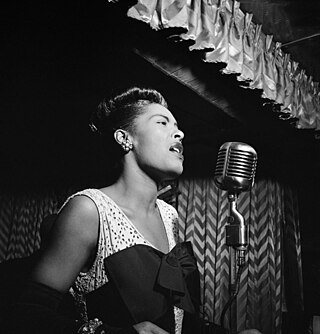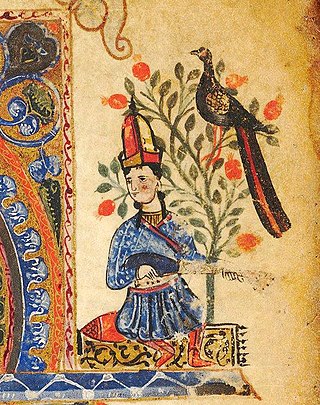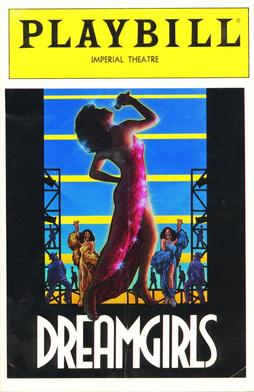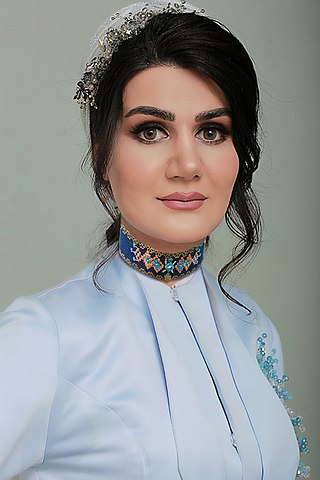
A song is a musical composition performed by the human voice. This is often done at distinct and fixed pitches (melodies) using patterns of sound and silence. Songs contain various forms, such as those including the repetition and variation of sections.

Broadway Melody of 1936 is a musical film released by Metro-Goldwyn-Mayer in 1935. In New York, the film opened at the Capitol Theatre, the site of many prestigious MGM premieres. It was a follow-up of sorts to the successful The Broadway Melody, which had been released in 1929, although, there is no story connection with the earlier film beyond the title and some music.

The rich and varied music of Sudan has traditional, rural, northeastern African roots and also shows Arabic, Western or other African influences, especially on the popular urban music from the early 20th century onwards. Since the establishment of big cities like Khartoum as melting pots for people of diverse backgrounds, their cultural heritage and tastes have shaped numerous forms of modern popular music. In the globalized world of today, the creation and consumption of music through satellite TV or on the Internet is a driving force for cultural change in Sudan, popular with local audiences as well as with Sudanese living abroad.

The "Londonderry Air" is an Irish air that originated in County Londonderry, first recorded in the nineteenth century. The tune is played as the victory sporting anthem of Northern Ireland at the Commonwealth Games. The song "Danny Boy" written by English lawyer Fred Weatherly uses the tune, with a set of lyrics written in the early 20th century.

The music of Armenia has its origins in the Armenian highlands, dating back to the 3rd millennium BCE, and is a long-standing musical tradition that encompasses diverse secular and religious, or sacred, music. Folk music was notably collected and transcribed by Komitas Vardapet, a prominent composer and musicologist, in the late nineteenth and early twentieth centuries, who is also considered the founder of the modern Armenian national school of music. Armenian music has been presented internationally by numerous artists, such as composers Aram Khachaturian, Alexander Arutiunian, Arno Babajanian, Haig Gudenian, and Karen Kavaleryan as well as by traditional performers such as duduk player Djivan Gasparyan.
The music of Iran encompasses music that is produced by Iranian artists. In addition to the traditional folk and classical genres, it also includes pop and internationally celebrated styles such as jazz, rock, and hip hop.
Persian traditional music or Iranian traditional music, also known as Persian classical music or Iranian classical music, refers to the classical music of Iran. It consists of characteristics developed through the country's classical, medieval, and contemporary eras. It also influenced areas and regions that are considered part of Greater Iran.

Carrie Minetta Jacobs-Bond was an American singer, pianist, and songwriter who composed some 175 pieces of popular music from the 1890s through the early 1940s.

Dreamgirls is a Broadway musical, with music by Henry Krieger and lyrics and book by Tom Eyen. Based on the show business aspirations and successes of R&B acts such as The Shirelles, James Brown, Jackie Wilson, and others, but closely follows the story of The Supremes as the musical follows the story of a young Black female singing trio from Chicago, Illinois called "The Dreams", who become music superstars.

Nokugcina Elsie Mhlophe, known as Gcina Mhlophe, is a South African storyteller, writer, playwright, and actress. In 2016 she was listed as one of BBC's 100 Women. She tells her stories in four of South Africa's languages: English, Afrikaans, Zulu and Xhosa, and also helps to motivate children to read.

Fran Landesman was an American lyricist and poet. She grew up in New York City and lived for years in St. Louis, Missouri, where her husband Jay Landesman operated the Crystal Palace nightclub. One of her best-known songs is "Spring Can Really Hang You up the Most".

An ashik or ashugh is traditionally a singer-poet and bard who accompanies his song—be it a dastan or a shorter original composition—with a long-necked lute in Turkic and non-Turkic cultures of South Caucasus. In Azerbaijan, the modern ashik is a professional musician who usually serves an apprenticeship, masters playing the bağlama, and builds up a varied but individual repertoire of Turkic folk songs.
"My Heart Belongs to Daddy" is a song written by Cole Porter, for the 1938 musical Leave It to Me! which premiered on November 9, 1938. It was originally performed by Mary Martin, who played Dolly Winslow, the young "protégée" of a rich newspaper publisher.

Ana Silvera is an English singer-songwriter, multi-instrumentalist and composer.
Sari Gelin or Sari Aghjik is the name for a number of folk songs popular among the people of Iran, the southern Caucasus and in eastern Anatolia in present-day Turkey. All versions of the song use the same melody and are written in the Bayati makam or mode, but are sung with different lyrics. The consensus about its country of origin is contested.
Niloufar Talebi is an author, literary translator, librettist, multidisciplinary artist, and producer. She was born in London to Iranian parents. Her work has been presented by, and/or performed at Carnegie Hall, Cal Performances, Atlanta Symphony Orchestra, American Lyric Theater, Hammer Museum, Los Angeles County Museum of Art, Craft and Folk Art Museum, Riverside Theatre, Royce Hall, ODC/Dance Theater, Berkeley Repertory Theatre, Magic Theatre, Intersection for the Arts, SOMArts Cultural Center, John F. Kennedy Center for the Performing Arts, Stanford University, and Brooklyn Academy of Music.

"A Pretty Girl Is Like A Melody" is a popular song written by Irving Berlin in 1919 which became the theme song of the Ziegfeld Follies. The first verse and refrain are considered part of the Great American Songbook and are often covered as a jazz standard.
Magdalena Gómez (1953-) is an American playwright, poet, social activist, motivational speaker, and performer. She lives in Springfield, Massachusetts where she is the artistic director of Teatro V!da, the city's first Latin@ theatre, and served as the city's second Poet Laureate. Gómez has worked with young people through the arts for nearly forty years and focuses much of her work on intergenerational collaboration.

Joelle Khoury is a Lebanese-American pianist and composer of jazz and contemporary classical music.

Sahar Ajdamsani is an Iranian singer, songwriter, poet, lyricist, writer, and photographer.












